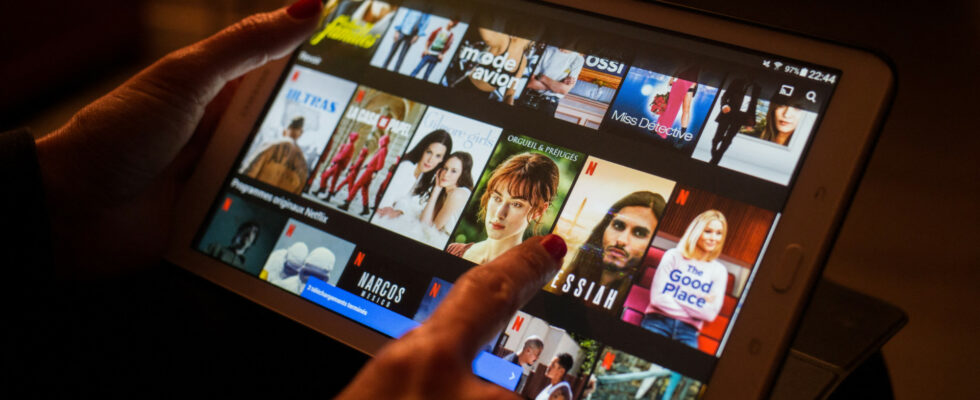Romain Rouillard / Photo credits: LAURENT PERPIGNA IBAN / HANS LUCAS / HANS LUCAS VIA AFP
modified to
06:42, March 15, 2024
The French are sleeping less and less. According to the latest data from INSV, the National Institute of Sleep and Vigilance, our nights last on average 6 hours 45 minutes during the week, or 15 minutes less than last year. In 2020, 28% of French people slept less than 6 hours per night.
A deficit from which the screens cannot be completely unrelated. Their omnipresence in our daily life is detrimental to our sleep, the international day of which we celebrate this Friday. Watching a film or series until late in the evening “keeps our brain active”, explains Armelle Rancillac, neuroscience researcher at Inserm (National Institute of Health and Medical Research). This intellectual solicitation, which occurs at a time when this activity is supposed to decrease, inevitably delays falling asleep.
Adolescents suffer more of the consequences
“The other factor will be the brightness of the screen which, in general, reflects a lot of blue light. However, the blue wavelength inhibits, in the brain, the synthesis of melatonin which promotes sleep” , specifies the researcher. A phenomenon even more marked among adolescents. “Teenagers are a little behind us, their internal clock is longer and they naturally take longer to fall asleep. So if we add screens to their melatonin which is already delayed, we add difficulty” , points out Armelle Rancillac who recommends “placing a filter for blue light in order to counteract its deleterious effects”.
However, it is not uncommon to nosedive, or even doze off, in the evening, in front of the television or even on your smartphone. “This kind of situation happens when you are faced with content that will be more passive. As a result, you let yourself be lulled, it’s a bit like a story, a nursery rhyme,” notes Armelle Rancillac. But here again, the quality of sleep suffers. “You will wake up, you will not be in your bed. And all you have to do is go brush your teeth to wake up and then have a lot more difficulty falling asleep.”
A “digital curfew”
Watching TV in bed, before falling asleep, is therefore not recommended. “If the TV does not turn off automatically in automatic mode, the sound may wake you up, which will keep you in a light sleep and delay falling asleep, even if it feels like you are sleeping,” explains Armelle Rancillac. Furthermore, she adds, it is recommended to sleep “in complete darkness” in order to preserve the quality of sleep.
And what about screens during the day? Can working behind a computer every day, for several hours in a row, ultimately harm our sleep? “Normally, it should not have an impact,” reassures the researcher. However, on condition that you combine this time spent in front of screens with regular physical activity, essential to guarantee quality sleep. To increase your chances of sleeping well, most experts finally suggest establishing a “digital curfew”. A technique that involves putting screens aside about an hour before going to bed and replacing them with reading or music.
